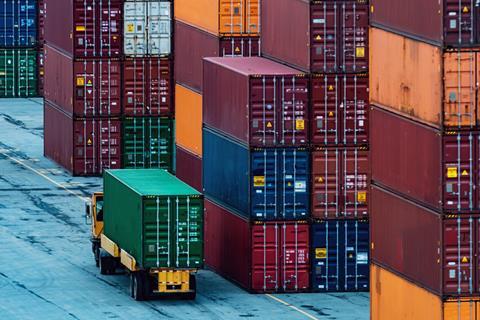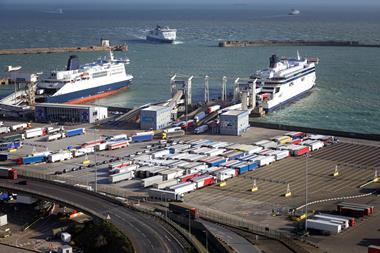
Small and medium-sized UK food manufacturing businesses are “tactically building up stock levels” in a bid ward off a slew of supply chain challenges, new research has suggested.
Faced with rising demand ahead of the busy festive period, coupled with rising shipping costs and delays, businesses were looking to safeguard supply, said inventory management software platform Unleashed, which analysed data from 600 SMEs using its services.
As a result, purchase orders jumped by just under 47% year on year during the second quarter of 2025. This came in the face of longer lead times for UK companies, which rose from 15 days on average to 27 days, on a quarter-on-quarter basis, Unleashed said.
The increase in stock levels was also reflected by rising sales, with Unleashed’s data showing they climbed by an average of 40.4% on the same period last year and by 60.4% compared with the previous quarter.
However, the surge in purchasing also corresponded with an increase in the value of excess stock – which nearly tripled quarter on quarter, from an average of £24,282 per business to £70,360.
This meant profitability – measured as gross margin percentage (excluding wages) – also dropped by 5.6 percentage points quarter on quarter.
Businesses were responding to shipping delays and rising demand for goods by moving towards “cautious buffering, designed to mitigate the risk of delays and stockouts”, said Joe Llewellyn, general manager at Unleashed’s parent The Access Group.
“In many cases, this isn’t a knee-jerk reaction to market conditions but a measured response. As manufacturers become more data-driven, they’re able to improve their forecasting capabilities and reduce the risks associated with stock purchasing decisions.”
It comes at a time of heightened turbulence across global trade supply chains. A report published last week by the United Nations’ Trade and Development organisation warned global shipping – moving over 80% of the world’s merchandise trade – was “entering a period of fragile growth, rising costs and mounting uncertainty”.
Political tensions, new tariffs, shifting trading patterns and reconfigured shipping lanes were “reshaping the geography of maritime trade”, UNCTAD revealed. Long-distance rerouting caused by geopolitical tensions also kept ships busier last year, with a record of nearly 6% growth in ton-miles.
“The USA and several trading partners have announced policy measures, including new tariffs and port fees in the US for certain foreign-built or foreign-operated vessels. These measures may further affect shipping costs and routes,” it added.
“The result is more rerouting, skipped port calls, longer journeys and ultimately increased costs. Energy shipping is also in transition: coal and oil volumes are under pressure from decarbonisation efforts, while gas trade continues to expand.”



















No comments yet